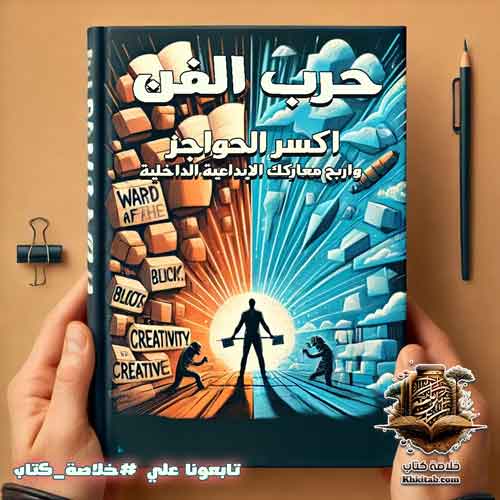You Can’t Ruin My Day: 52 Wake-Up Calls to Turn Any Situation Around Book Summary

In a world that seems increasingly complex and fast-paced, many find themselves submerged in waves of stress and negative circumstances that threaten to disrupt their day and their mood. In “You Can’t Ruin My Day: 52 Wake-Up Calls to Turn Any Situation Around,” Allen Klein presents a compendium of thoughts and practical tips that empower readers to regain control over their emotions and reactions to various life situations.
The book endeavors to provide readers with tools for self-transformation by adopting a positive outlook on life. Spanning 52 chapters, Klein addresses how an individual can face challenges and difficulties with an optimistic and pragmatic spirit, and how focusing on positives can transform frustrating events into opportunities for growth and development.
Through inspiring stories, motivational quotes, and jokes that lighten the daily load, Klein constructs a bridge for the reader to cross from the shores of despair to the banks of hope. He demonstrates how positive thinking can profoundly impact the quality of daily life and mental and emotional health.
إقرأ أيضا:مميز بالأصفر: إرشادات للعيش الحكيم والاختيار الجيدThis book is an invitation for self-reflection and positive change, aimed at anyone seeking to overcome daily obstacles and desiring to wield greater power in facing life with all its challenges. “You Can’t Ruin My Day” is not just a book; it’s a journey of personal transformation that leads you to take back control of your life and turn every day into a positive experience, regardless of circumstances.
How Can Your Attitude Choice Influence Your Daily Life?
Our daily experiences are not just shaped by the events that unfold around us, but significantly by our reactions to them. Allen Klein’s “You Can’t Ruin My Day” delves deep into the concept of ‘Choice of Attitude,’ exploring how the power of choice is a crucial determinant in our overall happiness and contentment in life. This part of the book serves as a reminder and a practical guide that the sovereignty over our internal state is firmly in our hands, regardless of external circumstances.
Klein illustrates that our inner peace is not a pawn to the external world’s game of unpredictability. Instead, he urges readers to embrace the power they possess in choosing their attitudes. He argues that this choice is an underutilized superpower that we all have, capable of transforming our daily life from a series of reactions to a dance of creation.
When we wake up to the realization that we can decide how we want to feel about a certain situation, we unlock a level of autonomy and serenity that is often lost in the chaos of life. The author doesn’t just state this; he provides actionable strategies to help us make this choice consciously. For instance, he suggests the practice of mindfulness and awareness of our immediate reactions, questioning their validity and helpfulness in our lives.
Furthermore, Klein discusses how to foster an internal dialogue that supports a positive attitude. This includes shifting our self-talk from critical and negative to supportive and empowering. He shares that the words we use in our thoughts can build us up or tear us down, and by choosing words that uplift and encourage, we cultivate a resilient and peaceful mindset.
In essence, “You Can’t Ruin My Day” offers more than just a philosophy; it provides a toolkit for anyone looking to take control of their emotional responses and, by extension, their life’s narrative. By emphasizing the choice of attitude, Klein invites readers to step into a role of empowerment, where they are no longer at the mercy of the world’s whims but are active participants in creating their joy and peace each day.
Our Facebook Page – Book Summary
How Can You Constructively Deal with Criticism Without Affecting Your Self-Esteem?
In “You Can’t Ruin My Day: 52 Wake-Up Calls to Turn Any Situation Around,” Allen Klein addresses the often uncomfortable subject of criticism and how it can be managed without allowing it to dampen our self-esteem. The book delves into the art of dealing with criticism in a constructive manner, emphasizing the significance of separating one’s self-worth from others’ opinions.
Klein acknowledges that receiving criticism is an inevitable part of life that can trigger defensive reactions and negative emotions. However, he offers a refreshing perspective: criticism, when taken constructively, can be a valuable tool for personal and professional growth. The book outlines practical strategies for reframing the way we perceive and respond to criticism.
One of the key tactics discussed is the importance of active listening. Instead of immediately reacting or becoming defensive, Klein suggests that we should listen to understand. By doing so, we can assess whether the feedback is valid and how it can be used for improvement. He also advises on differentiating between constructive criticism and mere negativity or personal attacks, teaching readers to focus on the content of the message rather than the tone in which it is delivered.
Another vital aspect that Klein touches on is the idea of developing a growth mindset. With this mindset, criticism becomes less of a personal affront and more of an opportunity to learn and evolve. This perspective allows individuals to view criticism through a lens of potential rather than a lens of failure.
Furthermore, Klein encourages readers to practice self-compassion and maintain a positive dialogue within themselves. By affirming one’s own value and abilities, it becomes easier to view criticism as an external input rather than an internal valuation of worth.
In essence, “You Can’t Ruin My Day” seeks to equip readers with the emotional intelligence to handle criticism without it impacting their self-image. It teaches that criticism, when approached with the right mindset and tools, does not have the power to ruin our day or our self-esteem but can instead be a stepping stone to greater resilience and self-improvement.
Life Sciences & Medicine – Book Summary Library (khkitab.com)
How Do You Transform Rejection into a Pathway for Growth and Redirection?
In “You Can’t Ruin My Day: 52 Wake-Up Calls to Turn Any Situation Around,” Allen Klein presents the subject of overcoming rejection with a transformative approach. Instead of viewing rejection as a personal failure, Klein suggests that we reframe it as an opportunity for redirection and personal development.
The book expands on the idea that rejection, while often perceived as a negative and final verdict on our efforts, can actually serve as a catalyst for self-improvement and a signal guiding us towards a path better suited to our unique skills and purpose. Klein provides readers with techniques to cope with the sting of rejection and to harness the experience for positive change.
One of the techniques Klein elaborates on is the concept of ‘rejection proofing’ oneself by building resilience. He encourages readers to develop a thick skin when facing rejection by not taking it personally and understanding that it often has more to do with the rejector than the rejected. Klein suggests a shift in perspective where rejection is not an end, but rather a necessary step in the journey to success.
He also emphasizes the importance of self-reflection post-rejection. By asking ourselves what can be learned from the experience and how it can inform future endeavors, rejection becomes less of a setback and more of a stepping stone. This involves analyzing the rejection critically but not critically of oneself – a distinction that allows for growth without self-deprecation.
Klein underscores the value of persistence in the face of rejection. He brings forth the idea that every ‘no’ brings us closer to a ‘yes’ and that the most successful people are those who do not let rejection deter their efforts. By collecting insights from each rejection, we can fine-tune our approaches and strategies, making us more adept and better prepared for future opportunities.
Ultimately, “You Can’t Ruin My Day” guides readers towards embracing rejection as a part of the growth process. Klein advocates for a proactive stance, urging individuals to use rejection as a tool for reflection, recalibration, and renewed pursuit of their goals. With this mindset, rejection is no longer a roadblock but an instructive detour on the road to achieving one’s true potential.
How Can Finding Humor in Difficult Situations Change Your Perspective and Lighten Your Burdens?
In “You Can’t Ruin My Day: 52 Wake-Up Calls to Turn Any Situation Around,” Allen Klein explores the transformative power of humor in challenging circumstances. The book elucidates how humor can be a strategic tool to alleviate the heaviness of life’s tough situations and shift our perspective towards a more positive light.
Klein proposes that finding humor in difficulty is not about dismissing the gravity of challenging situations, but about affording ourselves a moment of levity that can break the spell of stress and anxiety. This approach is not intended to undermine the seriousness of difficult times but to provide a coping mechanism that enables resilience and a more balanced outlook on life.
The book highlights how humor has the power to change our biochemical state, releasing endorphins and reducing stress hormones in the body. This physiological change can help in reframing our mindset and allows us to face adversity with a renewed sense of energy and hope. Klein illustrates this with anecdotes and practical exercises that encourage readers to identify and appreciate the lighter side of their struggles.
Klein also delves into the social benefits of humor. By sharing a laugh in tough times, we can connect with others on a human level, fostering camaraderie and support. This shared experience can be incredibly bonding and helps in creating a support system that can make the burdens feel less daunting.
In addition, the book discusses how humor can aid in gaining a fresh perspective. A humorous outlook can often reveal the absurdities of a situation, providing a new way to look at problems that might otherwise seem insurmountable. By allowing ourselves to step back and view our situations through a different lens, we often find new solutions and pathways forward.
Ultimately, “You Can’t Ruin My Day” offers readers the insight that humor is a potent antidote to the trials of life. It’s an invitation to integrate humor into our daily living as a means to enhance well-being, encourage adaptability, and transform our outlook on life’s challenges. With humor, we can learn to navigate the waves of adversity with grace and come out with a smile that signifies not just survival, but a thriving spirit.
How Can Practicing Gratitude Daily Enhance Your Well-Being and Positivity?
In “You Can’t Ruin My Day: 52 Wake-Up Calls to Turn Any Situation Around,” Allen Klein puts a spotlight on the practice of gratitude as a transformative habit that can significantly elevate one’s mental and emotional well-being. Klein posits that by embedding gratitude into our daily routine, we can cultivate a positive mindset that not only enhances our current state of happiness but also sets the foundation for sustained contentment and resilience.
The book discusses how gratitude shifts our focus from what is lacking in our lives to the abundance that is already present. This fundamental shift in perspective is shown to have profound effects on our psychological state, reducing feelings of envy and resentment while amplifying feelings of joy and satisfaction. Klein provides readers with practical ways to integrate gratitude into everyday life, such as keeping a gratitude journal, expressing thanks to others regularly, and taking time each day to reflect on the things we are grateful for.
Klein emphasizes that gratitude is more than just a feel-good exercise; it is a powerful tool that can rewire our brains. When we consistently acknowledge the good in our lives, we begin to notice more positives, which in turn encourages a more optimistic outlook. This positive feedback loop can lead to increased feelings of well-being and an enhanced ability to cope with stress and adversity.
Furthermore, the book illustrates how gratitude can improve physical health, citing studies that link the practice of gratitude with better sleep, lower blood pressure, and improved immune function. By acknowledging and appreciating our physical health and the environment around us, we foster a greater connection to our bodies and the world, leading to a more holistic sense of health.
Klein also delves into the social benefits of gratitude. By regularly acknowledging the contributions of others to our well-being, we strengthen our relationships and create a more supportive and compassionate community. This can lead to a feeling of interconnectedness and belonging, which is essential for a fulfilling and happy life.
Ultimately, “You Can’t Ruin My Day” advocates for gratitude as a daily discipline, similar to exercise or healthy eating. It’s presented as an essential component of mental hygiene, a habit that when practiced regularly, can improve our outlook on life, make us more resilient to life’s challenges, and improve our overall happiness. Klein’s message is clear: practicing gratitude is one of the simplest yet most effective strategies for creating a life filled with joy, peace, and contentment.
How Does Practicing Mindfulness and Presence Combat Overwhelm from Past Troubles and Future Anxieties?
Allen Klein’s “You Can’t Ruin My Day: 52 Wake-Up Calls to Turn Any Situation Around” provides a deep dive into the practice of mindfulness and the art of being present. The book underscores the significance of living in the moment as a powerful antidote to the stress that comes from ruminating over past difficulties or worrying about the future.
Klein articulates that an anchored presence in the now can serve as a fortress against the onslaught of past regrets and future fears. Mindfulness is depicted not just as a state of mind but as a daily practice, which involves conscious breathing, focused attention, and an open-hearted acceptance of the present moment. This practice helps individuals to acknowledge their past without being chained to it and to face the future without being preoccupied by its uncertainty.
The book explores the concept that being present allows us to experience life more fully, without the distortion of biased memories or hypothetical worries. Klein suggests practical exercises to foster presence, such as meditation, engaging in sensory-rich activities, and dedicating time to absorb the details of our immediate environment. These activities ground us in the present and help to cultivate a sense of peace and stability.
Moreover, “You Can’t Ruin My Day” addresses how being present in the moment can enhance our ability to connect with others and improve our personal relationships. When we are truly attentive, we listen more deeply, respond more thoughtfully, and engage more genuinely. This attentive presence can transform our interactions and foster deeper, more meaningful connections.
Klein also discusses how mindfulness can improve mental clarity and focus, thereby enhancing decision-making and productivity. By training our minds to return to the present, we reduce the mental clutter that often leads to procrastination and indecision. This clarity of mind allows for more deliberate actions and a more effective approach to daily tasks.
In summary, “You Can’t Ruin My Day” champions mindfulness and presence as essential tools for navigating life’s challenges. Klein encourages readers to adopt mindfulness as a daily habit, emphasizing its role in creating a robust inner life capable of withstanding the pressures of external circumstances. Through this practice, we can learn to live with a sense of tranquility, fully engaged with the richness of the present moment, free from the weight of yesterday’s shadows and tomorrow’s specters.
What Are Effective Strategies for Managing Stress Without Letting It Ruin Your Day?
In “You Can’t Ruin My Day: 52 Wake-Up Calls to Turn Any Situation Around,” Allen Klein offers a wealth of strategies for handling stress that aim to prevent it from overwhelming our daily lives and impacting our health. The book is a treasure trove of actionable advice that addresses stress management not as a sporadic effort but as a consistent practice.
Klein advises that the first step in managing stress is the recognition of its triggers. By identifying what causes our stress, we can begin to formulate a plan to address it. He suggests that stress can be mitigated through simple, mindful exercises such as deep breathing, which can be done anywhere and anytime. Deep breathing acts as a physical response to counteract the physiological symptoms of stress, promoting relaxation and a calm mind.
The book further recommends establishing a routine that includes time for relaxation and self-care. Klein proposes that even during the busiest of days, setting aside moments for activities that bring joy and relaxation is crucial. This can include reading, walking, listening to music, or engaging in a hobby. The key is to find what works for each individual and to make it a non-negotiable part of their day.
Klein also highlights the importance of physical activity as a stress reliever. Exercise releases endorphins, which are chemicals in the brain that act as natural painkillers and mood elevators. Regular physical activity can improve our overall mood and reduce the feelings of stress, anxiety, and depression.
Another significant point that Klein makes is about perspective. He emphasizes the power of reframing our thoughts to see the positive aspects of our situations. By challenging our negative thought patterns and focusing on positive outcomes, we can reduce the emotional impact of stress.
Klein does not shy away from the value of a good support system. He encourages readers to reach out to friends, family, or professionals when stress becomes overwhelming. Sharing our concerns and seeking advice can provide new insights and strategies for coping with stress.
In essence, “You Can’t Ruin My Day” suggests that stress management is about building a toolkit of strategies that work for each person. It includes recognizing stressors, practicing mindfulness, incorporating joy and relaxation into our daily routine, staying active, reframing our mindset, and seeking support when needed. With these tools, Klein assures readers that stress does not have the power to ruin our day or our health. Instead, we can learn to navigate through it with grace and maintain our well-being.
How Can You Turn Failure into a Stepping Stone for Success According to “You Can’t Ruin My Day”?
In “You Can’t Ruin My Day: 52 Wake-Up Calls to Turn Any Situation Around,” Allen Klein sheds light on the transformative approach to failure. Rather than seeing failure as a final destination, Klein encourages readers to view failures as critical lessons and essential stepping stones on the path to success. The book emphasizes the idea that failure is not the opposite of success but a part of the success process.
Klein suggests that each failure provides valuable feedback about what doesn’t work, offering a unique opportunity for growth and innovation. Instead of allowing failure to halt progress, he advocates for a mindset that asks, “What can I learn from this experience?” This shift in perception turns the negative connotations of failure into constructive insights.
The book delves into the importance of resilience, proposing that the ability to bounce back from failure is more critical than avoiding failure altogether. Klein encourages embracing setbacks as a natural and expected part of any endeavor. He presents stories and anecdotes that demonstrate how successful individuals have often failed numerous times before achieving their goals.
Klein also emphasizes the role of adaptability in learning from failure. He suggests that when plans do not work out, the willingness to pivot and try new strategies is vital. The book provides strategies for developing flexibility in thinking and action, which can help individuals adapt to changes and overcome obstacles.
Moreover, “You Can’t Ruin My Day” includes practical advice on maintaining motivation and perseverance in the face of failure. Klein reminds readers that persistence is often the distinguishing factor between those who ultimately succeed and those who do not. He provides tips on setting realistic goals, breaking them down into manageable steps, and celebrating small victories along the way to maintain momentum.
In summary, the book offers a holistic view of failure as an integral part of the journey to achievement. It encourages a positive attitude towards setbacks, underlining that with the right perspective and actions, what initially appears to be a failure can be reframed as a valuable lesson that propels us towards our ultimate objectives. Klein’s message is clear: by learning from failure, we can forge a path to success that is resilient, adaptable, and steadfast.
How Does “You Can’t Ruin My Day” Teach You to Build Resilience and Bounce Back Stronger from Setbacks?
In “You Can’t Ruin My Day: 52 Wake-Up Calls to Turn Any Situation Around,” author Allen Klein provides an insightful exploration into building resilience, focusing on developing the strength to overcome setbacks and emerge with a more positive outlook. The book offers a strategic approach to resilience, viewing it not just as an innate trait but as a skill that can be honed with practice and persistence.
Klein emphasizes that resilience is about emotional flexibility and the ability to adapt to challenging situations. He introduces the concept of ‘resilience reserves,’ a pool of mental and emotional strength that we can draw from in tough times. To build these reserves, he suggests engaging in regular self-care practices, maintaining strong social connections, and adopting a learning mindset towards all of life’s experiences.
The book delves into the power of positive thinking in building resilience. Klein encourages readers to reframe negative thoughts and focus on positive outcomes, a practice known to bolster psychological resilience. He illustrates how a change in language from negative to positive can significantly alter our emotional responses to challenges.
Klein also discusses the importance of setting achievable goals and celebrating small wins as a way to build confidence and a sense of accomplishment. This incremental progress, according to Klein, reinforces the belief in our ability to handle difficulties and strengthens our resolve to push through adversity.
“You Can’t Ruin My Day” also highlights the role of humor and laughter in resilience. Klein suggests that finding moments of joy and laughter amidst adversity can provide a much-needed break from stress, allowing us to return to our problems with a refreshed perspective and renewed energy.
Moreover, the book tackles the necessity of accepting what we cannot change and focusing our energy on the things we can control. Acceptance is a crucial component of resilience, as it allows us to move forward without being held back by circumstances outside our control.
In essence, the book is a guide to developing a resilient mindset that can withstand life’s inevitable ups and downs. Klein’s approach is practical and grounded in the belief that resilience can be cultivated through deliberate effort and attitude adjustment. By adopting the strategies outlined in “You Can’t Ruin My Day,” readers can learn to face setbacks with grace, knowing that each challenge is an opportunity to build resilience and grow stronger.
How Can Positive Self-Talk Shape Your Reality and What Are the Steps to Cultivate It as Advised in “You Can’t Ruin My Day”?
Allen Klein, in “You Can’t Ruin My Day: 52 Wake-Up Calls to Turn Any Situation Around,” illuminates the profound impact of self-talk on our perception of reality. He asserts that the dialogue we have with ourselves can either uplift or undermine our confidence and outlook on life. The book emphasizes the necessity of cultivating positive self-talk as a means to foster a supportive inner narrative that can powerfully shape our experiences and responses to life’s events.
Klein begins by identifying negative self-talk as a common obstacle that many people face. He describes how such internal chatter can distort our view of ourselves and our capabilities, often leading to a self-fulfilling prophecy of failure or dissatisfaction. To combat this, Klein advocates for a conscious shift in the way we speak to ourselves, suggesting that we can indeed rewrite the scripts that run in our minds.
The book outlines practical steps to develop positive self-talk. One key strategy involves awareness—becoming mindful of the negative patterns and intentionally pausing to reframe thoughts in a positive light. Klein suggests exercises such as journaling or using affirmations to reinforce positive messages.
Additionally, Klein discusses the power of language and encourages readers to choose words that reflect strength, capability, and hope. He emphasizes that even small changes in phrasing can shift one’s mindset from victimhood to empowerment. For instance, replacing “I have to” with “I get to” can transform a task from being a burden to an opportunity.
Klein also underscores the importance of practice and repetition in cultivating positive self-talk. He notes that just like any other skill, reinforcing positive dialogue requires consistency and patience. Readers are encouraged to practice positive self-talk daily, making it a habit that eventually becomes second nature.
Moreover, the book delves into the role of positive self-talk in overcoming challenges. Klein presents the idea that a supportive internal voice can act as an ally during tough times, providing encouragement and reminding us of our past successes and strengths. This inner ally can help maintain motivation and resilience when facing obstacles.
In essence, “You Can’t Ruin My Day” presents positive self-talk as a transformative tool that influences our inner world and, by extension, our external reality. By embracing and practicing the techniques Klein outlines, individuals can begin to experience the profound benefits of a positive inner dialogue, leading to improved mental health, greater life satisfaction, and a stronger sense of personal empowerment.
How Does Setting Healthy Boundaries Protect Your Emotional Space as Explained in “You Can’t Ruin My Day”?
In “You Can’t Ruin My Day: 52 Wake-Up Calls to Turn Any Situation Around,” Allen Klein emphasizes the crucial role of setting healthy boundaries for safeguarding one’s emotional well-being. The book explores the concept of boundaries not just as physical or social perimeters, but as essential constructs that help maintain our emotional integrity and personal space.
Klein advocates for the clear definition of personal limits as a form of self-respect and a declaration of self-worth. He points out that without well-defined boundaries, individuals may find themselves overwhelmed by the demands and energies of others, leading to stress and emotional depletion.
The book outlines practical steps for establishing boundaries. First, it involves self-reflection to understand what you are comfortable with and what you are not. Klein encourages readers to take inventory of their feelings and experiences to identify areas where their boundaries may be weak or non-existent.
Once aware of these areas, Klein advises on the necessity of communicating these boundaries to others. This communication does not have to be confrontational but should be assertive and clear. The author provides examples of how to express one’s needs respectfully and how to assertively say no when those boundaries are challenged.
Moreover, “You Can’t Ruin My Day” discusses the importance of consistency in maintaining boundaries. Klein stresses that boundaries are only effective when they are upheld consistently. It’s not enough to set them; we must also honor them and be willing to reassert them when they are tested.
The book also addresses the emotional benefits of setting boundaries. By defining and sticking to our personal limits, we allow ourselves the space to grow, reflect, and engage with others on our terms. This leads to improved self-esteem, reduced anxiety, and a more empowered way of interacting with the world.
Klein doesn’t ignore the challenges that come with setting boundaries. He acknowledges that there may be pushback from those who are used to having unlimited access to our time and energy. However, he reassures readers that setting boundaries is a necessary step towards healthy relationships and personal peace.
In summary, “You Can’t Ruin My Day” treats the act of setting boundaries as a vital self-care practice. The process involves self-awareness, clear communication, and the courage to maintain one’s stance. By doing so, Klein assures that individuals can protect their emotional space, reduce stress, and enhance their overall quality of life.
How Does “You Can’t Ruin My Day” Empower You to Take Proactive Steps in Improving Your Life?
In “You Can’t Ruin My Day: 52 Wake-Up Calls to Turn Any Situation Around,” Allen Klein presents the powerful concept of empowerment through action. The book challenges the idea of helplessness and instead encourages readers to take proactive steps to better their circumstances, no matter how daunting they may seem.
Klein underscores the importance of recognizing that we have the power to change our situation by our actions. He inspires readers to move from a passive state, where life happens to them, to an active state, where they are the architects of their own experiences. The book is filled with examples and strategies that illustrate how taking even the smallest step can lead to significant changes.
One of the key messages in the book is the notion that we are not defined by our circumstances but by our responses to them. Klein emphasizes that while we may not control every aspect of our lives, we always have the choice to respond in a way that aligns with our values and goals. He encourages readers to identify what they can control and to focus their energy on those areas.
The book also discusses the psychological shift that occurs when we take action. Instead of feeling overwhelmed by a sense of helplessness, taking action imbues individuals with a sense of purpose and direction. Klein explains how this shift in mindset from victimhood to agency can transform our outlook on life and increase our overall sense of satisfaction.
Klein doesn’t just leave readers with the concept; he offers practical advice on how to take action. This includes setting clear and achievable goals, breaking them down into manageable tasks, and celebrating small victories along the way. He also advises on building a support network that encourages and supports taking action.
Moreover, “You Can’t Ruin My Day” tackles the issue of fear and failure that often hinders proactive behavior. Klein reassures readers that failure is a natural part of the learning process and that each setback is an opportunity for growth. He encourages embracing failure as a step towards success and emphasizes the learning that comes from each attempt.
In essence, the book serves as a call to empowerment, providing readers with the tools and motivation to actively shape their lives. By adopting the strategies Klein outlines, individuals can break free from the shackles of helplessness and take charge of creating the life they desire, reaffirming the book’s core message that indeed, you can’t ruin my day.
How Can Nurturing Positive Relationships Enhance Your Life Experience as Suggested in “You Can’t Ruin My Day”?
In “You Can’t Ruin My Day: 52 Wake-Up Calls to Turn Any Situation Around,” Allen Klein highlights the profound impact of nurturing positive relationships on one’s overall life experience. The book delves into the ways that relationships can serve as a support system, providing both strength and comfort during challenging times as well as amplifying joy during good times.
Klein asserts that relationships are the cornerstone of a well-lived life, and investing in them can yield long-term benefits. He emphasizes that fostering positive relationships involves active listening, empathy, and the mutual exchange of support. The author stresses the importance of being present and attentive in interactions, suggesting that quality time is one of the most significant gifts we can offer to strengthen our connections with others.
The book offers insight into how nurturing relationships require effort and intentionality. It involves showing appreciation, consistently communicating, and being willing to grow alongside others. Klein encourages readers to be proactive in their approach to relationships, advocating for the idea that we should not merely expect relationships to flourish on their own but should work actively to cultivate them.
Additionally, “You Can’t Ruin My Day” discusses the concept of setting healthy boundaries within relationships as a means to preserve individual well-being and maintain the integrity of the relationship. Klein points out that relationships thrive when there is a balance between giving and receiving and when individuals feel their personal boundaries are respected.
Klein also addresses the need to be selective with whom we spend our time and energy, suggesting that surrounding ourselves with positive people can significantly influence our own attitudes and behaviors. He discusses the idea of ‘relationship audits’ to assess which relationships are uplifting and which are draining, advising readers to invest more in the former.
Moreover, the book touches on the healing power of forgiveness in relationships. Klein presents forgiveness not as a one-time event but as an ongoing process that can release resentment and allow relationships to move forward. He advises that forgiveness is a key component in not only repairing relationships but also in maintaining mental and emotional health.
In essence, “You Can’t Ruin My Day” provides a guide to nurturing relationships that contribute to a fulfilling and joyful life. Through actionable advice and wake-up calls, Klein teaches that by putting effort into our relationships, we build a network of support that enhances our resilience, brings happiness, and enriches our life experience.
How Can You Create and Maintain an Environment That Fosters Positivity as Advised in “You Can’t Ruin My Day”?
Allen Klein’s “You Can’t Ruin My Day: 52 Wake-Up Calls to Turn Any Situation Around” offers an enlightening perspective on constructing and upholding an environment that radiates positivity. Klein proposes that our surroundings, both physical and social, significantly influence our state of mind and that it’s within our power to shape these environments to support a positive outlook on life.
The book underscores the importance of being intentional about the spaces we inhabit and the company we keep. Klein suggests that the physical space around us can be arranged to promote a sense of tranquility and inspiration. He encourages decluttering and organizing our living and working areas as a way to enhance focus and reduce stress. Incorporating elements of nature, personal mementos that spark joy, and calming colors can transform a space into a sanctuary that supports well-being.
In terms of the social environment, Klein highlights the critical role of surrounding ourselves with positive influences. He advocates for cultivating relationships with people who uplift and encourage us, and distancing ourselves from those who drain our energy. He also suggests that being part of community groups or networks that share our values can reinforce a positive social environment and provide a sense of belonging and support.
Klein also discusses the impact of media consumption on our environment. He advises careful selection of the content we consume, recommending that we engage with media that is uplifting and informative rather than that which fuels negativity or discontent.
Furthermore, “You Can’t Ruin My Day” addresses the significance of creating a positive mental environment. Klein guides readers through practices such as mindfulness, gratitude, and positive affirmations, which can cultivate a positive inner dialogue and outlook. He stresses that a positive mental environment is just as crucial as our physical and social surroundings, and that nurturing our mindset is a continuous process.
The book also covers the power of routines and rituals in maintaining a positive environment. Establishing routines that include self-care practices, regular exercise, and moments of reflection can solidify the foundation of a positive lifestyle.
In summary, Klein’s book provides a roadmap for individuals looking to create and sustain an environment that enhances positivity. By taking control of our physical space, choosing our social circle wisely, managing our media intake, and fostering a healthy mental space, we can build a setting that not only nurtures positivity but also empowers us to live more fulfilling lives.
How Does Embracing Change Lead to a More Fulfilling Life as Explained in “You Can’t Ruin My Day”?
In “You Can’t Ruin My Day: 52 Wake-Up Calls to Turn Any Situation Around,” Allen Klein explores the theme of embracing change as a cornerstone for a fulfilling and dynamic life. The book conveys that change is an inevitable and natural part of our existence, and accepting it is not only beneficial but necessary for growth and happiness.
Klein discusses the often instinctive resistance to change that many people experience, rooted in fear of the unknown and comfort in familiarity. He challenges readers to shift their mindset, viewing change not as a threat but as an opportunity for development and new experiences. The book suggests that this perspective can transform our lives, leading to personal evolution and the opening of doors to new possibilities.
The author emphasizes that embracing change involves recognizing its inherent value. Klein encourages readers to reflect on past changes that, while perhaps initially uncomfortable, led to positive outcomes. This reflection can cultivate an attitude of optimism and trust in the process of life, assuring us that change can lead to unexpected benefits.
Klein also offers practical advice on how to embrace change. He suggests starting with small adjustments to build confidence in handling larger transitions. Adopting a flexible attitude, being open to new ideas, and staying proactive in the face of change are key strategies discussed in the book. By doing so, we become agents of change rather than its victims, empowered to shape our own destiny.
Moreover, “You Can’t Ruin My Day” addresses the importance of resilience in the face of change. Klein provides insights into how we can bolster our resilience by maintaining a positive outlook, keeping our sense of humor, and finding strength in our support systems. These resources enable us to navigate change with grace and determination.
In essence, the book presents embracing change as an essential life skill that fosters personal growth, adaptability, and well-being. Klein’s message is clear: by accepting and embracing change, we can turn any situation around, making the most out of life’s ever-evolving landscape. This approach not only makes us more robust in the face of adversity but also more open to the richness of life’s experiences.








